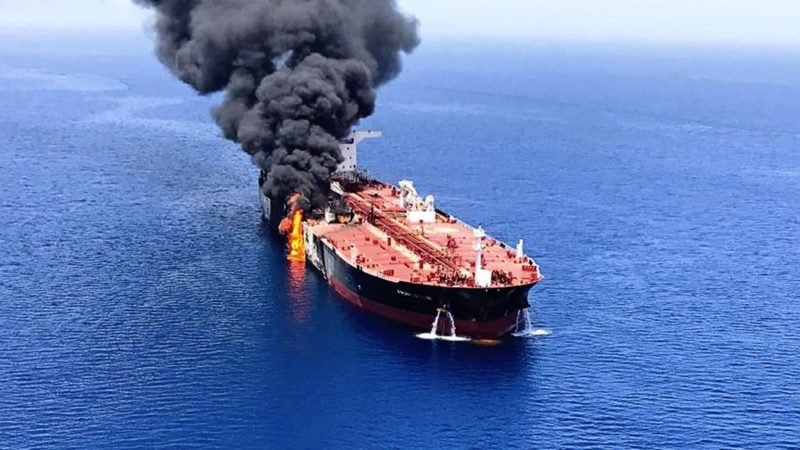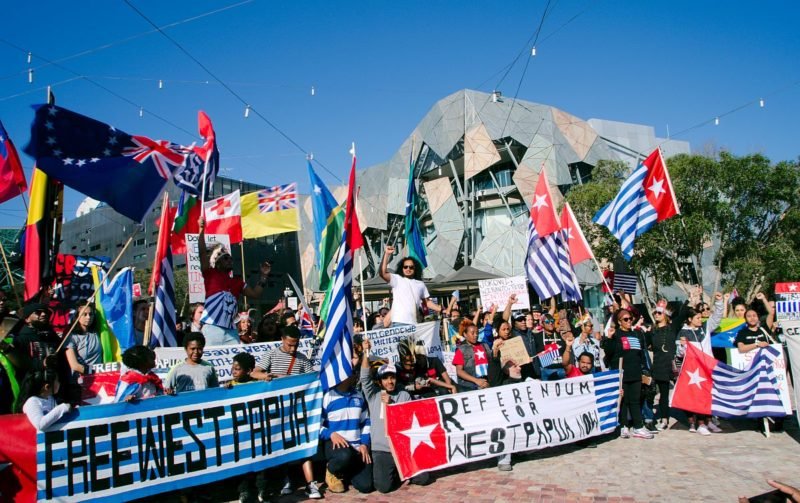Asia has most to lose if Middle East turmoil hits oil supplies

U.S. President Donald Trump says he might take military action against Iran to prevent it from acquiring a nuclear weapon. But he has indicated he won’t necessarily jump in to protect international oil supplies from the Middle East if they are under threat from the Islamic Republic.
The position, articulated by Trump in an interview with Time magazine on June 17, should not come as a surprise, even if it appears to be at odds with the Pentagon beefing up aircraft carriers and troops in the Middle East in recent weeks, citing a threat from Iran.
As Trump spelt out in the interview, the U.S. is no longer as dependent on oil from the Middle East as it was, thanks to burgeoning domestic production.
Air Force General Paul Selva, vice chairman of the U.S. Joint Chiefs of Staff, emphasized the message a day later, pointing out that China, Indonesia, Japan and South Korea were heavily dependent on supplies moving through the Strait of Hormuz, and needed to protect their interests. U.S. Secretary of State Mike Pompeo has made similar comments.
The argument that the Gulf of Oman, where six oil tankers were attacked in the space of a month over May and June, is not as strategic to the U.S. as it is to countries in Asia, cannot be faulted. The U.S.’s crude import volumes, including those from the Middle East, have plummeted since its shale renaissance sent domestic output rocketing from around 2012.
Meanwhile, China, India, Japan and South Korea, Asia’s four largest oil consumers, secure up to half their crude requirements from the Middle East. If seaborne shipments of oil from that region — a majority of which pass through the narrow Strait of Hormuz adjoining Iran — are disrupted, it would be nothing short of disastrous for these countries.
However, the U.S.’s logic around who should shoulder responsibility for securing oil from the region ignores the fact that it alone is responsible for Iran’s current state of outrage. Washington has pushed Tehran against the wall by unilaterally reimposing sanctions against its oil sector last November and ratcheting up the pressure by ending selective exemptions to its ban since May.
The Asian powers have played no role in the commercial isolation imposed upon Iran or the resultant rising tensions in the Middle East, which have brought a rash of drone attacks on oil facilities in Saudi Arabia as well as rockets being fired into Iraq.
In fact, China, the only Asian signatory to the 2015 multilateral nuclear agreement with Iran that ended crippling UN sanctions, still firmly backs the deal, alongside Russia and the EU powers. Japan’s Prime Minister Shinzo Abe visited Tehran earlier this month, with the hope of mediating between the U.S. and Iran and helping calm down regional tensions.

However, a benign or even a sympathetic stance toward Tehran is not going to save Asia if oil shipments from the Middle East are disrupted.
The Gulf of Oman, where oil vessels were attacked on May 12 and June 13, is used as a transportation route by all seven major exporters in the region: Saudi Arabia, Iran, Iraq, Kuwait, Qatar, UAE and Oman. These producers collectively pump just over 24 million barrels a day of crude, a little less than a quarter of world consumption.
Nearly half goes to Asia, where apart from China, India, Japan and South Korea, significant net oil importers include Taiwan, Indonesia, Vietnam, Thailand, Philippines, Australia and Pakistan. Overall, Asia holds surplus refining capacity but lacks enough local crude feedstock. It is also the world’s fastest-growing region for fuel demand.
The U.S. and Saudi Arabia have blamed the tanker attacks on Iran, a charge the latter has vehemently denied. The incidents happened just south of the Strait of Hormuz, a choke point that connects the Gulf of Oman with the Persian Gulf, which Iran’s Revolutionary Guards have threatened to blockade.
Iran has never actually stopped traffic through the strait, despite frequent threats to do so. The recent tanker attacks in the Gulf of Oman were likely caused by limpet mines and projectiles, aimed at damaging the ships but not sinking them, according to preliminary investigations.
Exports of oil and liquefied natural gas out of the Middle East have continued as per normal.
However, the threat of recurring maritime attacks looms large. Saudi and Iraqi oil facilities could also be targeted. Crude has spiked, as the market prices in the risk of a major production outage or disruption in oil shipments.
Insurance premiums for ships sailing around the Strait of Hormuz have shot up by an average of 10%, and by up to 100% for some large tankers, while some shippers temporarily stopped plying the route as a precaution.
The U.S. has been stressing that it is not looking for a war with Iran. The sentiment is echoed by Iran’s regional rivals. But in a politically-charged situation even a small accident could trigger a military conflict.
Asian governments must quickly assess the level of threat and formulate responses. Working collectively may need more effort, but a united front would be stronger.
The leaders should decide if they can help provide security to commercial shipments in and around the Strait of Hormuz with naval escorts and inform Washington.
Japan, South Korea, Australia and New Zealand are the only Asian countries that maintain a minimum 90 days’ worth of net oil imports as emergency stockpiles, based on the International Energy Agency’s recommended guidelines. China has been building strategic oil reserves in recent years, but those are said to be equivalent to only about 32 days of net oil imports.
The emergency stockpiles will be used domestically, leaving those without reserves in the lurch. Oil producers in the region such as Indonesia, Malaysia, Australia and Vietnam already pump the most they can. Asian buyers could turn to the North Sea, West Africa, North America and Latin America for additional supplies but those don’t have much spare capacity, at least nothing that can be brought on stream quickly.
In the longer term, Asian governments might want to send a clear message to the Trump administration: If their vital interests are directly impacted by Washington’s actions against Iran, they need to have a say in those decisions instead of simply being left to mop up the mess afterwards.
This article was first published on 21 June 2019 in the Nikkei Asian Review

Vandana Hari is the founder of Singapore-based Vanda Insights, which tracks energy markets. She has two decades of experience providing essential intelligence on the energy sector.


















